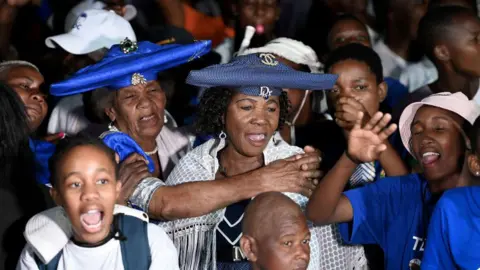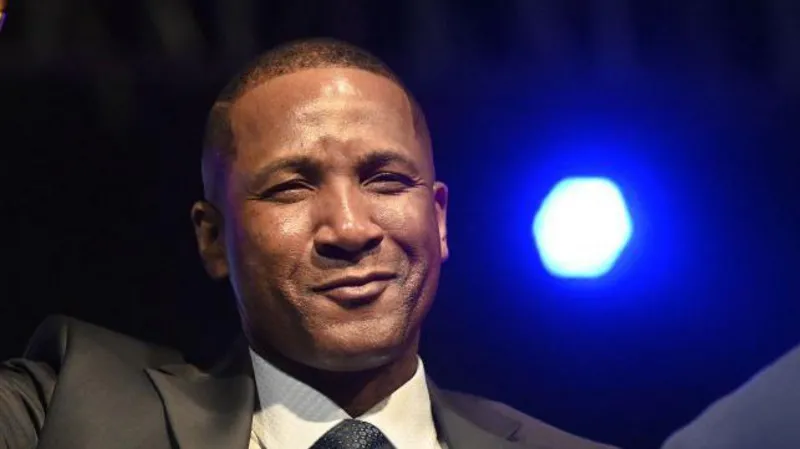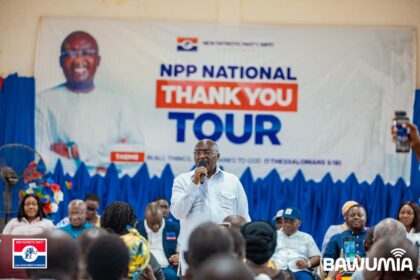Confident and well-mannered, Botswana’s new President Duma Boko carries the traits of a highly trained human rights lawyer.
The 54-year-old’s thoughtful, fluent sentences speak of his legal education first in Botswana and then at Harvard Law School in the US.
And despite being humble in victory, the fact that he won the presidency at the third time of asking reveals a single-minded ambition.
For more than 50 years opposition politicians have dreamt of unseating the mighty Botswana Democratic Party, but only Boko has made that a reality.
The crushing manner of the victory of his Umbrella for Democratic Change (UDC) party came as a surprise, including it seems to Boko himself, who admitted being shocked by the numbers.
But, dressed in his signature dark blue suit, he did not gloat or celebrate wildly in his first comments to the media on Friday when the scale of his win became clear.
“I can only pledge to [the people] that I will do my very best. Where I fail and fault, I will look to them for guidance,” he said.
Boko captivated the nation going through difficult economic times with promises of change, employment and government stipends.
“People fell in love with him and this is the result,” journalist Innocent Selatlhwa told the BBC’s Focus on Africa podcast.
Throughout his campaign, at rallies Boko would ask supporters to come closer and listen to their grievances in a way that made him appealing to young people, the journalist added. Boko was serious, but always engaging and friendly.
He also ruled out running as a member of parliament and put all his efforts into becoming president – a bold move, according to Selatlhwa.
Born in 1969, in the country’s Central District, in the small town of Mahalapye, Boko always had a sense of respect, according to relatives.
“He was so fixated with doing the right thing. His sense of justice ran deep,” his aunt told a local newspaper.
During his time in school, he was elected president of the student council.
In his legal career, he emerged as one of the country’s top lawyers, according to political analyst Lesole Machacha.
 Getty Images
Getty ImagesPassionate about knowledge and education, Boko always has a strong grasp on current affairs and issues in Botswana, Mr Machacha told the BBC.
“He is serious about fixing the country,” he added.
He became the leader of the Botswana National Front (BNF) in 2010, which used to have more “communist ideals”, said Mr Machaha, but the party has since tacked towards the centre.
But frustrated by the years of opposition defeat, Boko pioneered the creation of an alliance of the parties opposed to the government and the UDC was born.
He came under fire over a decade ago when he described the academic staff at the University of Botswana as “useless”, despite being a former lecturer.
Many people took this as a dig at the country’s education system.
When he was confronted about this by a journalist on the South African news channel eNCA he responded: “The truth hurts.”
Earlier this month, his wife Kaone Boko told the Mmegi newspaper that her husband was principled to the point of stubbornness.
“He does not back down from a fight; no matter how big the enemy is,” she said.
A clue perhaps to how he managed to stay the course and see off one of Africa’s most successful political parties.
BBC.COM


